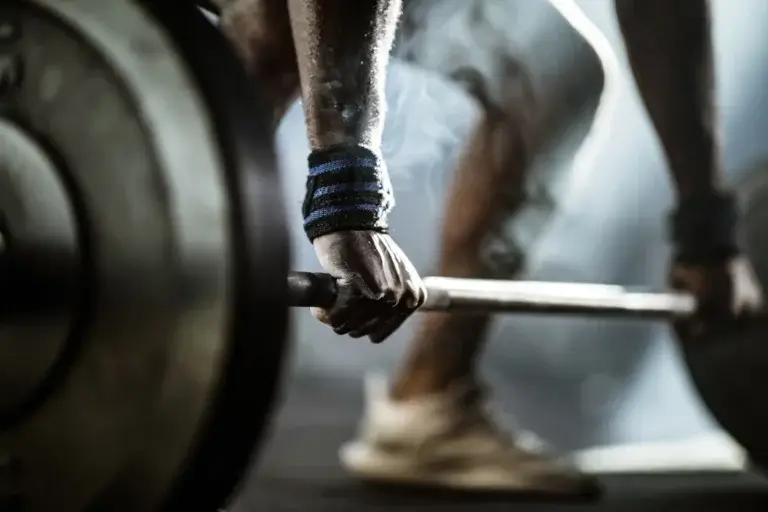
Nutrition
Does Your Diet Affect Testosterone Levels?
As men age, their testosterone levels naturally decrease, leading to a multitude of undesirable side effects. From decreased sex drive to mood swings and fatigue, low testosterone can significantly impact quality of life. Fortunately, there are certain foods that can help increase testosterone levels naturally.
1 min read
Published on
January 2, 2024
Written by
EDGE
Share this article
Foods That Naturally Boost Testosterone Levels
Fatty Fish and Omega-3 Rich Foods
Oily fish, such as salmon and mackerel, are excellent sources of omega-3 fatty acids, which can help increase testosterone levels[1]. These fish are also high in vitamin D, which is essential for hormone production. Plant-based sources of omega-3s, such as chia seeds and flaxseeds, are also beneficial.
Leafy Green Vegetables
Leafy green vegetables, such as spinach and kale, are an excellent source of magnesium. Magnesium is essential for hormone production and can help increase testosterone levels[2]. Other vegetables high in magnesium include broccoli, brussels sprouts, and cabbage.
Nuts and Seeds
Nuts and seeds are rich in a variety of nutrients that are essential for hormone production, including zinc and omega-3 fatty acids. Almonds, walnuts, and pumpkin seeds are particularly high in these nutrients and can help increase testosterone levels.
Whole Grains
Whole grains, such as quinoa and brown rice, are a good source of complex carbohydrates, which can help regulate insulin levels. Insulin resistance can lead to decreased hormone production, so it is essential to maintain healthy blood sugar levels. Whole grains are also rich in B vitamins, which can help the production of testosterone[3].
Lean Meats and Poultry
Lean meats and poultry provide high-quality protein and are a good source of zinc, which is essential for testosterone production. Grass-fed beef and free-range chicken are particularly beneficial, as they are also rich in omega-3 fatty acids.
Dairy Products
Dairy products, such as milk and cheese, are a good source of calcium, which is important for bone health. They are also rich in vitamin D, which is essential for testosterone production. However, it is important to consume dairy products in moderation, as they can be high in saturated fat.
Oysters
Oysters contain more zinc per serving than any other food, making them a great way of hitting your zinc goals. Zinc is important for reproductive health in men, and can lead to increased levels of testosterone.
Foods to Avoid for Optimal Testosterone Levels
Processed Foods and Sugars
Processed foods and sugars are incredibly prevalent in modern diets. From fast food to sugary snacks, they are a quick and easy option for many people. However, these types of foods can lead to increased inflammation in the body, which can impact hormone production. Inflammation is the body's response to harmful stimuli, and when it becomes chronic, it can lead to a host of health problems. Consuming foods high in sugar can also cause blood sugar spikes and crashes, which can negatively impact testosterone levels. Therefore, it is important to avoid processed foods and sugary snacks as much as possible.
Instead, focus on consuming whole, nutrient-dense foods such as fruits, vegetables, lean proteins, and healthy fats. These foods can help to reduce inflammation in the body and support optimal hormone production.
Alcohol and Caffeine
Excessive consumption of alcohol and caffeine can lead to decreased testosterone levels. Alcohol is a depressant that can interfere with the production of testosterone and other hormones in the body. It can also lead to dehydration, which can negatively impact overall health.
Caffeine, on the other hand, can interfere with sleep patterns, which can also negatively impact hormone production. While moderate consumption of alcohol and caffeine is unlikely to have a significant impact on testosterone levels, it is essential to maintain balance and avoid excess consumption.
Instead, try swapping out your alcoholic or caffeinated beverages for herbal teas, water, or other non-alcoholic, non-caffeinated beverages. This can help to support optimal hormone production and overall health.
Herbal Supplements for Testosterone Support
Herbal supplements have been shown to support healthy testosterone levels. Here are some of the most effective herbal supplements:
Ashwagandha
Ashwagandha is a herb that has been used for centuries in traditional medicine to support overall health. It is also known as Withania somnifera and Indian ginseng. Recent studies have shown that it can also be an effective way to support healthy testosterone levels[4]. Ashwagandha works by reducing the stress hormone cortisol, which can have a negative impact on testosterone levels. It also contains compounds that can improve sperm quality and motility.
Fenugreek
Fenugreek is a herb that has been used in traditional medicine to treat a variety of ailments. It is also known as Trigonella foenum-graecum. Fenugreek has been shown to have numerous health benefits, including supporting healthy testosterone levels[5]. It contains compounds that can increase the production of testosterone and reduce the conversion of testosterone to oestrogen. Fenugreek can be taken as a supplement or added to foods such as curries and stews.
Tribulus Terrestris
Tribulus Terrestris, also known as puncture vine. Some sites and supplement companies claim it can increase your testosterone levels, but there is no research to back up that claim. However, it may improve cortisol and cholesterol levels in people with diabetes.
Blood test for
Advanced Testosterone
12 Biomarkers Included
sports doctor review
Results in 2 working days
Flexible subscription
Medically Reviewed

This article has been reviewed by our medical expert
Our expert Dr Thom Phillips works in NHS general practice and has a decade of experience working in both male and female elite sport. He has a background in exercise physiology and has published research into fatigue biomarkers.
Read Next...
Get expert advice to help you improve your results.
Go to our knowledge centerGet 10% off your first order
Want regular tips on how to make the most of your results? Join our newsletter and we'll give you 10% off your order!



